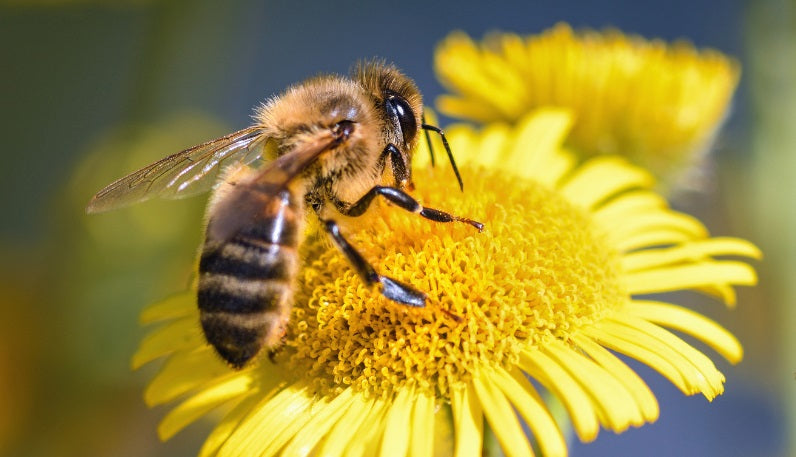Bees play a crucial role in pollinating plants not only honey bees but bush and natives bees do their job too. They are essential for the growth of fruits, vegetables, and flowers. If you want to attract bees to your garden and reap the benefits of their pollination, plus help with their survival, follow these expert tips:
Plant a Variety of Flowers
Bees are attracted to a wide range of flowers, especially those with bright colors and a sweet fragrance. Planting a variety of flowers that bloom at different times throughout the year will provide bees with a continuous source of food. We recommend planting Marigolds, Sunflowers, Nasturtiums and Hollycock seeds amongst your vegetables to bring the bees to your garden.
Provide a Water Source
Bees need water to survive, especially during hot summer days. Create a shallow water source in your garden, such as a birdbath or shallow dish filled with water and pebbles for bees to land on while drinking.
Avoid Pesticides
Chemical pesticides can be harmful to bees and other pollinators. Instead, opt for natural pest control methods or plant bee-friendly plants that naturally repel pests. This will help create a safe environment for bees in your garden.
Plant Native Plants
Native plants are well-adapted to the local climate and soil conditions, making them attractive to native bee species. Research which plants are native to your area and incorporate them into your garden to attract a diverse range of bees.
Create Nesting Sites
Bees need safe places to build their nests and lay eggs. Provide nesting sites by leaving patches of bare ground, creating bee hotels with hollow stems or blocks of wood, or installing bee boxes specifically designed for solitary bees.
By following these expert tips, you can attract bees to your garden and create a thriving ecosystem that benefits both you and these important pollinators. Enjoy the sight of bees buzzing around your garden while knowing that you are helping to support their population and the health of your plants.

